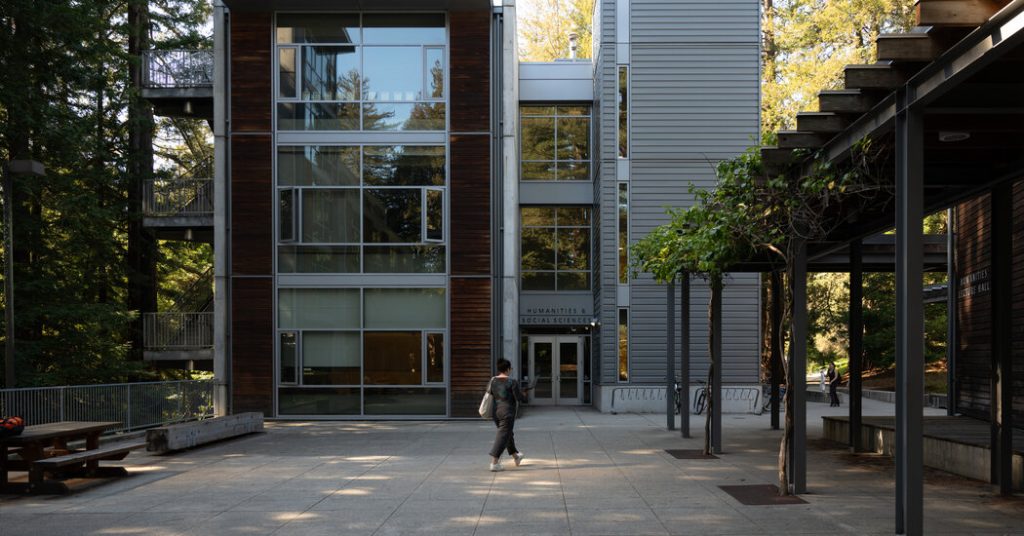Academic workers at the University of California, Santa Cruz, represented by U.A.W. 4811, are planning to go on strike starting on Monday to protest the university system’s handling of pro-Palestinian demonstrations. The union represents about 48,000 graduate students and other academic workers at 10 University of California campuses and the Lawrence Berkeley National Laboratory, with about 2,000 members working at Santa Cruz as teaching assistants, tutors, and researchers. The strike is not expected to last beyond June 30 but could complicate coursework for the spring quarter, which ends on June 13. The union president, Rafael Jaime, cited the university’s crackdown on free speech and protest rights as reasons for the strike.
The announcement of the strike comes after University of California academic workers voted to authorize the union to call for a strike in response to the university system’s changes regarding free speech policies, alleged discrimination against pro-Palestinian speech, and creating an unsafe work environment by allowing attacks on protesters. Recent violent incidents at University of California, Los Angeles and ongoing encampments at various campuses have heightened tensions. The university has filed an unfair labor practice charge and urged the union not to strike, stating that it could set a dangerous precedent and interfere with the university’s core missions of teaching, research, and public service.
The strike authorization vote enables a “stand up” strike, allowing the union’s executive board to focus strikes on specific campuses or workers. Members at other U.C. campuses may also strike if their grievances are not addressed by the university system. The union has filed an unfair labor practice charge with the California Public Employment Relations Board, outlining their grievances, which extend beyond traditional bargaining issues like wages and benefits. University of California officials have pointed to the no-strike clause in the bargaining contract, but the union argues that their strike is in response to unfair labor practices, falling outside the scope of traditional bargaining issues.
The strike at Santa Cruz follows a series of protests and arrests at other University of California campuses, including U.C. Berkeley and U.C. Irvine, where police have intervened to clear encampments. The union’s decision to strike has raised concerns about the impact on academic operations at the affected campuses and the broader implications for labor relations within the university system. The ongoing tensions between academic workers and the university administration highlight the complex issues surrounding free speech, protest rights, and labor practices within the academic community.
As the strike begins, the university system faces challenges in maintaining academic continuity and addressing the demands of the striking workers. The standoff between the union and the administration reflects broader tensions around labor rights, free speech, and campus protest movements. The outcome of the strike and the university’s response will have implications for future labor relations and academic activism within the University of California system. The academic community, students, and the public will be closely watching developments as the strike unfolds and its impact on campus life and academic operations becomes apparent.


